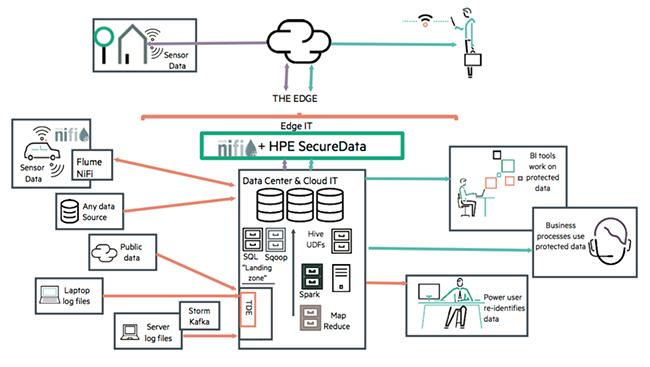Big Data Security Market Size, Industry Growth | 2035

The immense challenge of securing vast and complex data ecosystems is being tackled by a diverse group of highly specialized Big Data Security Market Companies. This market is not monolithic; it is comprised of several distinct categories of players, each addressing the problem from a different angle. The first category includes the established enterprise security and database giants such as IBM, Oracle, and Broadcom (through its Symantec acquisition). These incumbents leverage their deep roots in corporate IT, offering comprehensive security suites that have been adapted to manage the risks associated with big data environments. Their strengths lie in their ability to provide integrated solutions covering everything from identity and access management (IAM) to data loss prevention (DLP) and security information and event management (SIEM), often catering to the stringent compliance needs of large, regulated industries. They provide a sense of stability and broad platform support, which is highly valued by Chief Information Security Officers (CISOs) managing complex hybrid cloud environments. Their established sales channels and extensive enterprise support networks give them a significant competitive advantage in large-scale deployments, where trust and reliability are paramount.
The second, and increasingly dominant, category consists of the major cloud service providers: Amazon Web Services (AWS), Microsoft, and Google Cloud Platform (GCP). As the default destination for modern big data workloads, these hyperscalers have made security a core, integrated component of their data platforms. They are not just providing the infrastructure; they are building a comprehensive security fabric around the data itself. Services like AWS Macie (for sensitive data discovery), AWS Lake Formation (for fine-grained access control in data lakes), Microsoft Purview (for unified data governance), and Google's Data Loss Prevention API are prime examples of this trend. Their primary competitive advantage is the seamless, low-friction experience they offer. Security controls can be enabled with a few clicks, they scale automatically with the data, and they are tightly integrated with the provider's other cloud services. This native approach makes them the default choice for many organizations building their data analytics platforms in the cloud, as it simplifies architecture and reduces the need for third-party tools.
A third, and highly innovative, category is composed of venture-backed startups and specialized data security firms. Companies like Immuta, Privacera, and Okera have emerged to solve a problem that neither the incumbents nor the cloud providers fully address: providing a unified, fine-grained, and consistent data access control layer that works across a heterogeneous mix of modern data platforms. These startups recognize that a typical enterprise's data is not located in a single place; it is spread across multiple clouds (e.g., Snowflake, Databricks on AWS, BigQuery on GCP) and on-premise systems. Their value proposition is to create a single, policy-as-code-driven control plane that can discover, classify, and enforce complex access policies (such as column-level masking or row-level filtering) consistently across this entire distributed data estate. They compete on the basis of their specialization, agility, and their ability to solve the "last mile" of data security in the modern data stack. The Big Data Security Market size is projected to grow USD 53.87 Billion by 2035, exhibiting a CAGR of 14.81% during the forecast period 2025-2035.
Top Trending Reports -
- Art
- Causes
- Crafts
- Dance
- Drinks
- Film
- Fitness
- Food
- الألعاب
- Gardening
- Health
- الرئيسية
- Literature
- Music
- Networking
- أخرى
- Party
- Religion
- Shopping
- Sports
- Theater
- Wellness
